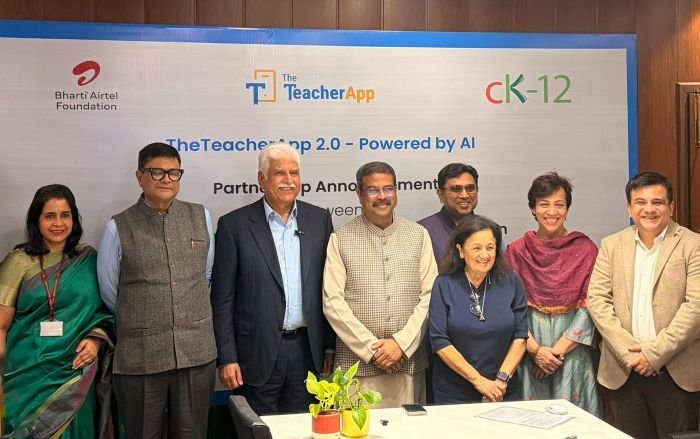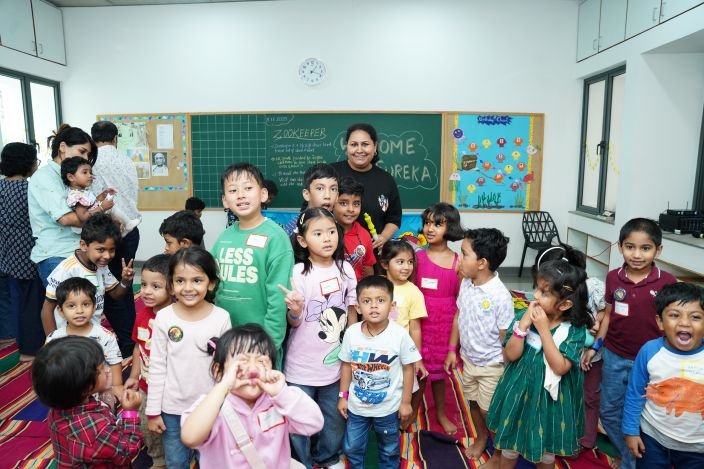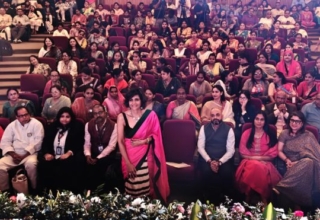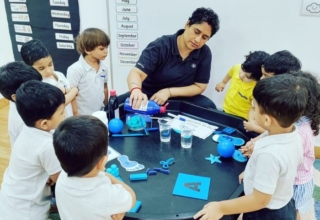
Children below 6 years of age as a category (about 13.2% of country’s population) face a deeper futuristic brunt of Covid19 Pandemic and yet the governments have so far failed to devise a response for this significant chunk of population, which ironically is also the future of nation
If you’re a parent of a young child, you should take time to talk to him or her a lot. Respond to their questions and importantly listen to them. Remember, your interaction contributes a great deal in his or her learning process and cognitive development. In fact, these talks, playful activities and engagements are scientifically recognized as the building blocks of his or her emotional wellbeing and learning for life brain development. Parent is the first teacher but in Covid19 pandemic, for the time being parents are the only teachers for preschoolers.

According to Prof Rekha Sharma Sen, Professor Faculty of Child Development, IGNOU, New Delhi, parents and the whole ecosystem around preschoolers must realize that even if child is sitting at home and will not be able to go to school say for next six months, it shouldn’t worry them if small opportunities of learning are created at home. Speaking at a webinar, ‘The Invisible Rights of Children under 6 years during Covid19 Crisis’ organized by RTE Forum today (June 4), an advocacy national alliance of several child right organizations, groups and individuals, Prof Sen added: “Parents of small children in particular must be seen as co-educators and not only as medium of transmitting messages from teachers and schools only,” she added.

Prof Venita Kaul, Professor Emeritus (Education), Ambedkar University, Delhi, who was a keynote speaker at the webinar emphasized the need of strengthening parenting programs which will sensitize and empower them to negotiate the challenges of this pandemic. In this context, she talked about how online content (howsoever educative it may be) rush on pretext of pandemic is doing additional damage to young children, who in any case spent a lot of screen time on mobiles and other device despite WHO clearly recommending children under age of 3 shouldn’t be on screens at all. “I have come across instances where there is an online education program for one and a half (1⅟2) year olds is there who can’t even talk. Then for online classes, parents especially mothers have to operate computers for children and sit with them. We need to remember lockdown has increased the workload of parents particularly working from home. Then there is a third set of people, who get messages on whatsapp about activities for children. Again, some of them have mobile recharge issues and finding stationery items needed for such activities,” she cited based on her own survey.
“There is a lack of understanding and standardization as reading and writing is seen as the educational curricula by majority of our preschool providers. In fact, early education has been reduced to a set of activities, mastering and writing alphabets, numbers etc., whereas there is need of holistic development of child which comes from learning of language, creativity and respecting child’s own curiosity,” she said.
Talking about the impact of toxic stress on education outcomes and adult life health of children citing neurosciences, Prof Kaul flagged the issue of domestic violence and its increase in lockdown as it vitiated the home environment and posed a risk of toxic stress for children. Safe and secure environment, love and warmth is important for a child to grow. “Parental wellbeing especially of mother is essential and therefore convenience, context and cultural background of parents are important for any intervention. The focus has to be socio-emotional climate of the family,” she added.
While advocating suitable changes in the teacher training programs to include parenting component and community-based parents training, Prof Rekha Sharma Sen said the need of the hour is to reach out and work with a basket of options and draw on strength of each option.
Sushila Ahuja, Education Specialist-ECE, UNICEF, brought out the commendable work done by Anganwadi and Asha workers at grassroots during the pandemic and the SOP that has been evolved including online training while stressing that capacity building of anganwadi workers is still need of the hour and hygiene becoming non-negotiable. She informed that UNICEF India has created a parenting page on its site (https://www.unicef.org/india/what-we-do/early-childhood-development/parenting) which contains a lot of parenting resources. “Other organizations and people can also put their resources on our page,” she added.


According to Ambarish Rai, national convener of RTE Forum, their effort is to become voice of these voiceless children whom our Prime Minister forgot to mention in all his all important 10 major announcements since the lockdown. “We see PM Modi talking to children on exam stress, but when they need more of handholding, he or his advisors may not have thought it necessary. How can a country become atmanirbhar (self-reliant) if its future (children) in extreme hardship and distress is not protected and cared far?” he asked.
While immunization has slightly picked up in some places, children of smaller age have been advised to stay indoors. In these conditions and compulsions, a clear policy on these children is a must for the system and this large child population (estimated to be 13.2% of India’s 1.3 billion population and their families. Perhaps, a clearer view on children in disaster management and requisite budgetary requirements along with clubbing health, nutrition, care and education needs of children in such situations, is needed now more than ever. —Autar Nehru








